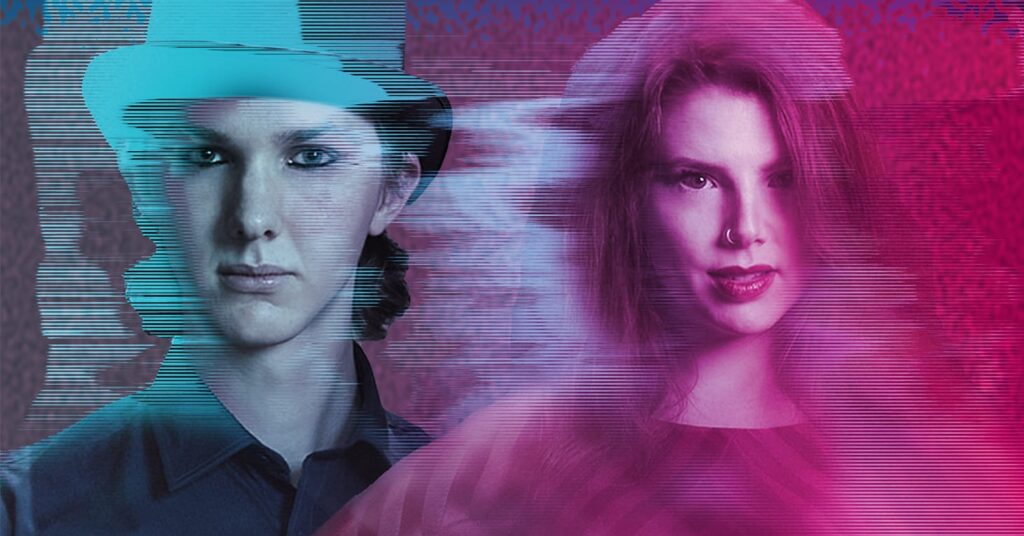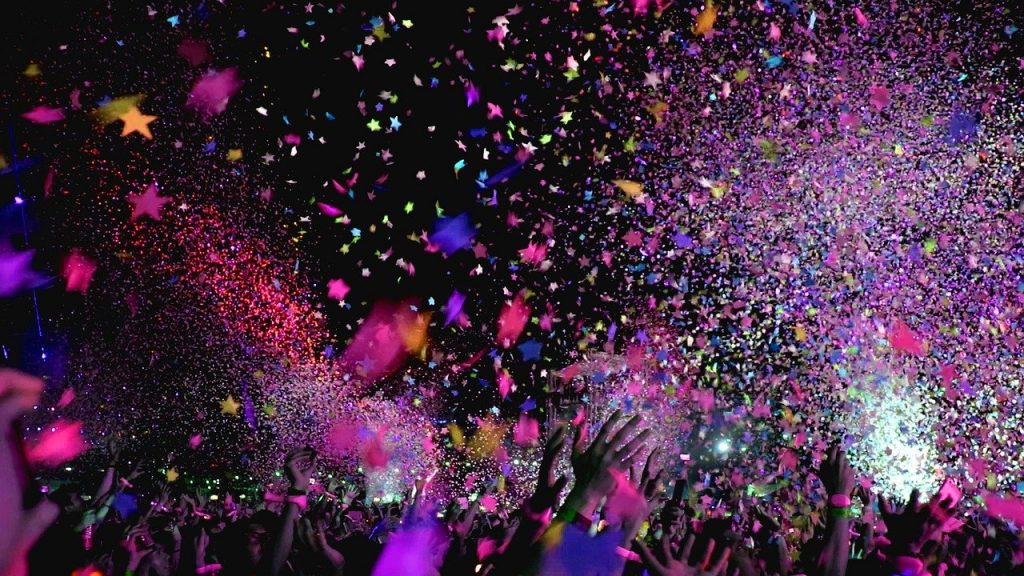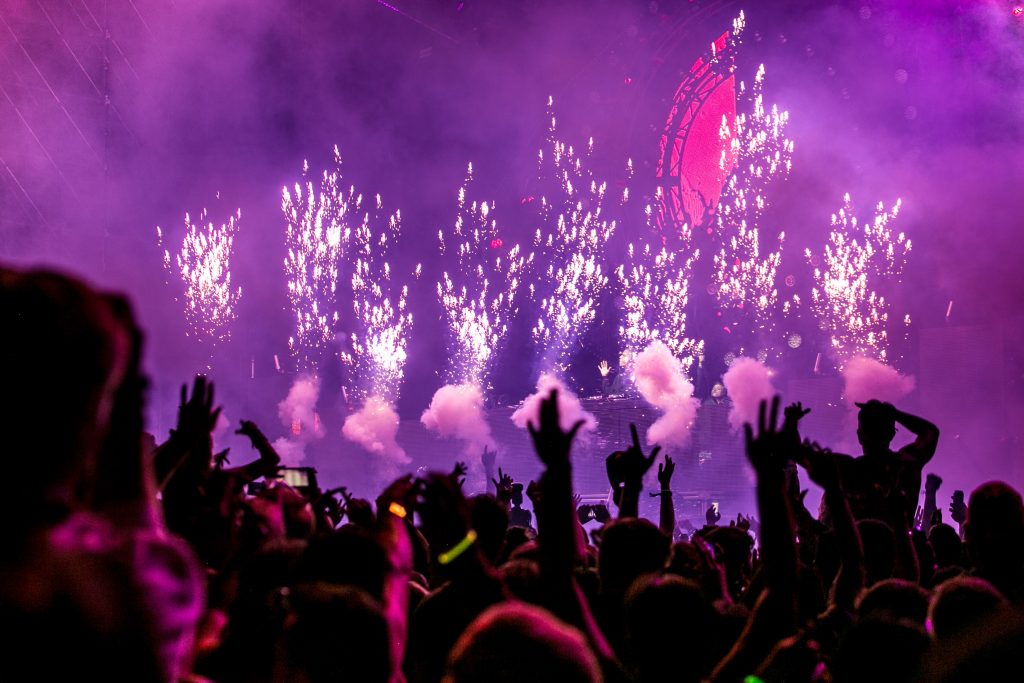
‘Dark and Ridley: Dark Vanilla Jungle’ & ‘Tonight with Donny Stixx’ // The X Collective
‘Dark & Ridley’ was exploitative.
The X Collective’s opening to their 2024 season sets to tackle the dark sides of the human psyche with Wayne McPhee’s production of ‘Dark and Ridley: Dark Vanilla Jungle and Tonight with Donny Stixx’. With provocative subject matter and deep emotional intensity, the production offers to both disturb and empathetically engage audiences across its runtime.
Staged in Holy Trinity Church in Fortitude Valley for its Brisbane premiere, the production is a double-bill of two monologue plays written by Philip Ridley. Heavily influential, highly controversial and critically lauded, Ridley has been noted as a pioneer of the in-yer-face genre of theatre, relying on taboo, obscene language, violence and challenging subject matter. I must clarify that this production is not for the faint of heart, for those who get easily triggered or disturbed.
First staged in 2013 and 2015 respectively, ‘Dark Vanilla Jungle’ follows Andrea (Whitney Duff), a young woman struggling to cope with the traumatic events of her past while desperately craving a family and home. Likewise, ‘Tonight with Donny Stixx’ follows Donny (Ronan Mason), a teenage magician whose aspirations of stardom clash with his current reality. Both shows explore the themes of identity and the desire to be loved and appreciated in public and in private.
Entering the space for ‘Dark and Ridley’, audiences are greeted by a low-fi end-on stage. White sheets cover tables, substituting for designated space in the church, with a makeshift walkway for the performers to occasionally pace up and down. During the interval, the set design subtlety morphs to include leaves, a small white stool and a clothes rack for Duff’s Andrea to perform costume changes. The low-fi minimalist atmosphere in the venue added to the overall tone of the taboo subjects presented in the production.
Direction by Wayne McPhee was, in a word, minimalist. Their work acknowledges that the bulk of the work lingers in Ridley’s provocative text and the performer’s role in bringing it to life. With subtle changes in place, time, mood and blocking, the audience focus is entirely on the character. Explicit theatricality is only used to highlight key traumatic moments of Donny and Andrea, such as a key scene involving Nine Inch Nails’ Hurt to signify a feeling of helplessness.
Duff’s Andrea is a commanding stage presence. Their physicalisation and emotional nakedness capture the character in a believable downward spiral out of a deranged pit of fear, and a yearning for love. Mason’s portrayal of Donny is very much a gleeful teenage British psychopath. Dismissive, malevolent and naïve enough to achieve superstardom, their boyish charm and energy work to hold the audience’s attention.
Both fully commit across multiple roles and a variety of British accents. It is not easy to hold an audience’s attention across each one-person show and they should be applauded for their efforts.
Ridley’s texts are both intriguing and triggering. One moment, darkly comic. The next, horrific. Overall, British. Its full commitment to capturing the spiralling thoughts of its characters forces across the combined three-hour runtime will leave audiences gasping for air. And apart from a brief interval, there’s no moment to breathe. One hopes that the runtime could have been cut down a tad or having the productions staged on separate nights to lessen the exhaustion while keeping the confrontational nature of each text.
A minute yet crucial point of criticism stems from the decision to stage Ridley’s text word-for-word without any adjustments. This is felt in the ‘audience interaction’ if one could even call it that. A character would ask for an audience member’s name, said audience member would respond with their own name, and would be subsequently acknowledged not with what was spoken, but the one assigned on the page. Some may like this addition, but this reviewer did not. This choice effectively stripped away the truthfulness and believability of the work. In those moments, the audience was not an audience. They were a soundboard.
The easiest way to fix this minute yet major point would be to acknowledge the names being called in the audience and localise the references, as the intended immersion of the production would continue.
The lighting design by Timothy James was simple yet effective in complimenting the various changes in each performer’s monologue and set design, allowing for an effective guide throughout the scenes. Some moments were particularly effective, such as a red wash over Duff’s Andrea during transitions, further elevating the low-fi environment into a theatrical space.
Overall, ‘Dark and Ridley’ was a very long intense night into the depths of British madness and desperation. Across two challenging monologues, each performer gives their all to showcase Philip Ridley’s work.
‘Dark and Ridley: Dark Vanilla Jungle & Tonight with Donny Stixx’ performs until Friday, 26 April 2024 at Holy Trinity Church Hill. For more information, visit their website.






